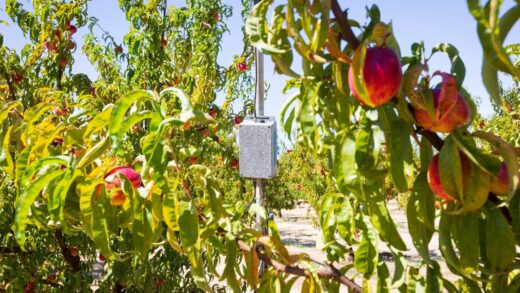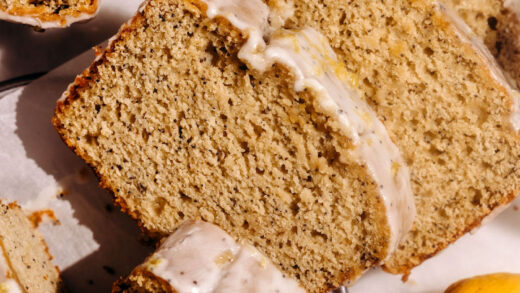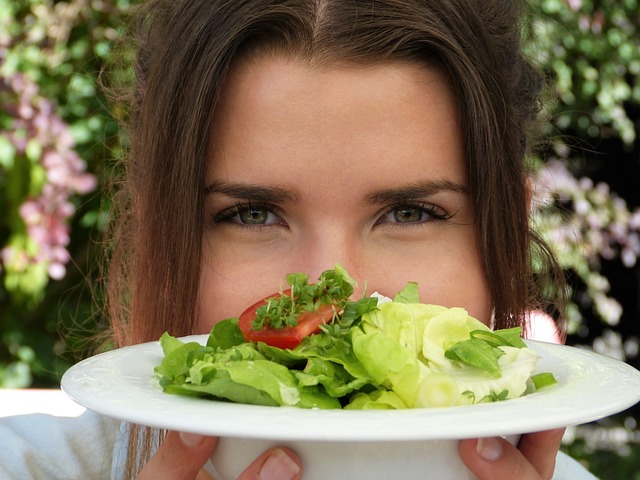
Table of contents:
Did you know that nearly one-third of adults don’t get enough sleep? A staggering 84% report feeling fatigued during the week due to poor sleep quality or insufficient rest. Beyond being an inconvenience, inadequate sleep poses serious health risks. Interestingly, what you eat could make a significant difference. By making these smart dietary choices, you can pave the way for better rest and overall health.

Nutrients that Promote Sleep
The connection between diet and sleep is more profound than many realize. Certain nutrients play a crucial role in promoting restful sleep, making it easier to fall asleep and stay asleep throughout the night.
Melatonin: Known as the sleep hormone, melatonin regulates the body’s internal clock, signaling when it’s time to sleep. Foods such as eggs, milk, and tart cherries naturally contain melatonin, potentially aiding in falling asleep faster and achieving more restorative sleep.
Omega-3 Fatty Acids: Found in foods like salmon, walnuts, and flaxseeds, omega-3s are associated with better sleep patterns. They help regulate circadian rhythms and reduce inflammation, which can contribute to improved sleep quality.
Vitamin D: Essential for maintaining healthy sleep-wake cycles, vitamin D is obtained from sources such as salmon and fortified dairy products, as well as sunlight exposure. Low levels of vitamin D have been linked to poorer sleep quality and increased daytime sleepiness.
Magnesium: This mineral plays a role in relaxing the body and mind, reducing anxiety and promoting sleep. Foods rich in magnesium, like pumpkin seeds, spinach, and almonds, can support better sleep by facilitating relaxation.
Iron: Involved in processes related to sleep, iron deficiency can lead to sleep disturbances and restless leg syndrome. Consuming iron-rich foods such as spinach, beef, and lentils may improve sleep quality and reduce nighttime awakenings.
These vital nutrients are not just remedies for better sleep; they’re pillars of holistic well-being. By incorporating them into your diet, you’re fostering a foundation of health that extends beyond the night.
Foods and Drinks That Help with Sleep

Struggling to catch those Z’s? Your diet might hold the secret to more restful nights. Check out these tasty sleep-boosting foods that can help you relax and snooze soundly till morning.
🥝 Kiwi: Research from the University of North Carolina at Chapel Hill shows that eating two kiwifruits an hour before bed could cut mid-sleep wake-ups by 30%. If you’re chasing better sleep, give kiwi a try for potentially sweeter dreams!
🫐 Berries: Berries such as blueberries, raspberries, and blackberries are rich in antioxidants. Antioxidants help combat oxidative stress in the body, which can contribute to sleep disturbances. Enjoying antioxidant-packed berries before bedtime may help reduce physical stress and promote better sleep.
🍍 Pineapple: Pineapple is another beneficial fruit for improving sleep. It contains high levels of melatonin, a hormone that regulates sleep-wake cycles. Research indicates that consuming pineapple can significantly increase melatonin levels in the body, potentially aiding in falling asleep faster and enhancing overall sleep duration.
🍯 Honey: A spoonful of honey before bed can lower orexin levels, a neurotransmitter linked to alertness, helping you relax and prepare for sleep. Additionally, honey supports liver glycogen, providing the energy your body needs to maintain sleep through the night.
🍵 Chamomile Tea: Known for its soothing properties, chamomile tea is a classic bedtime beverage. The calming effects of chamomile can ease the mind and body, making it easier to fall into a restful sleep.
🥛 Milk: Warm milk isn’t just a myth from childhood. It contains tryptophan, an amino acid that boosts melatonin production, promoting a regular sleep cycle. A warm glass of milk before bed can have a calming effect, helping you settle down for the night.
🍌 Bananas: High in potassium and magnesium, bananas are nature’s own sleep aid. These minerals help relax muscles and nerves, and the tryptophan in bananas can further encourage relaxation and sleepiness.
🥜 Nuts: A handful of nuts, such as walnuts, flax seeds, pumpkin seeds, or sunflower seeds, can boost serotonin levels in the brain. These nuts are rich in magnesium and tryptophan, both of which are essential for a good night’s sleep.
🌾 Whole Grains: Whole-grain foods, like bread or oatmeal, can stimulate the production of insulin, which helps tryptophan enter the brain more easily. This can aid in producing the sleep-inducing hormone melatonin.
🍒 Cherry Juice: Cherries, especially tart cherries, are a natural source of melatonin. Studies have shown that drinking cherry juice can improve sleep quality and duration, making it a great choice for a bedtime drink.
🥣 Yogurt: A small bowl of yogurt can be a perfect post-dinner treat. Yogurt contains calcium, which helps process sleep-inducing hormones. Top it with some oats or whole grains for added benefits.
🍗 Poultry: Turkey and chicken are high in tryptophan, making them great choices for a sleep-friendly snack. A slice of lean turkey or chicken on whole-grain bread can be a strategic pre-bedtime snack.
🫘 Beans: Packed with B vitamins like B6, niacin, and folate, beans can help your brain function and reduce stress and anxiety. These vitamins have long been used to treat insomnia, making beans a valuable addition to your diet.
🍳 Eggs: Eggs are another good source of tryptophan. Enjoy a hard-boiled egg with a cup of tea sweetened with honey for a simple and effective way to promote sleep.
🧆 Chickpeas: High in vitamin B6, chickpeas help produce serotonin, the feel-good hormone. Incorporate chickpeas into your dinner or make some hummus for a healthy late-night snack.
🥬 Leafy Greens: Rich in calcium, leafy greens like kale and spinach are beneficial for sleep. They can be enjoyed in various ways, including as crunchy kale chips for a savory evening snack.
🍇 Grapes: Grapes contain naturally occurring melatonin. Keep some grapes in the fridge for a refreshing summer snack that supports restful sleep. Remember, grapes work better than wine for sleep!
⚪ Oats: Not just for breakfast, oats are a great evening snack. They are a natural source of melatonin and can help you feel full, making them ideal for a bedtime treat.
Foods and Drinks to Avoid Before Bed
Achieving restful sleep isn’t just about what you eat—it’s also about what you avoid. Just as certain foods and drinks can promote better sleep, others can have the opposite effect, making it harder to drift off and stay asleep. Understanding which items to avoid before bedtime is key to maintaining good sleep hygiene and ensuring you wake up refreshed each morning.
🍸 Alcohol: While alcohol may initially help you fall asleep, it disrupts the later stages of sleep, leading to less restorative rest. It also relaxes muscles, potentially worsening conditions like sleep apnea and increasing acid reflux.
🍲 Heavy Foods: Fatty, cheesy, and fried foods take longer to digest, potentially causing indigestion and discomfort that keeps you awake. Avoid large meals late in the day to promote better sleep.
💧 Foods with High Water Content: Foods like celery, watermelon, and cucumbers, while nutritious, can increase the likelihood of nighttime bathroom trips, disrupting your sleep cycle.
☕ Foods with Hidden Caffeine: Many foods, including tea, soda, and chocolate desserts, contain caffeine that acts as a stimulant, making it harder to achieve deep sleep and reducing REM sleep.
🍰 Super Sugary Treats: Sugary snacks cause blood sugar spikes and crashes, disrupting sleep patterns and leading to restless nights.
🧀 Tyramine-Rich Foods: Foods high in tyramine, such as aged cheeses, tomatoes, and red wine, stimulate brain activity, making it difficult to wind down and fall asleep.
🌶️ Spicy Foods: Spicy dishes can raise your body temperature, making it harder to fall asleep and stay asleep comfortably, especially if you’re prone to heartburn.
🍅 Acidic Foods: Highly acidic foods like citrus juices and tomato sauce can trigger acid reflux, causing discomfort and disrupting sleep.
🫘 Gas-Inducing Foods: Foods high in fiber, such as beans, broccoli, and cauliflower, can cause bloating and gas, potentially keeping you awake with discomfort.
Timing of Meals and Snacks
Breakfast: Starting your day with a substantial breakfast helps regulate your body’s energy levels and sets a positive tone for the day. Eating a hearty breakfast can also help prevent late-night hunger that can disrupt sleep.
Lunch: Eating lunch earlier in the day, before 3 pm, helps maintain a steady energy level and promotes better sleep at night. An earlier lunch aligns with your natural circadian rhythms, supporting overall sleep quality.
Dinner: Consuming a small dinner at least 3 hours before bedtime aids digestion and reduces the risk of reflux and heartburn. An early dinner helps synchronize your circadian rhythm and supports the natural increase of melatonin, enhancing sleep quality.
Snacks: Choose light, sleep-promoting snacks in the evening, such as a small bowl of oatmeal, a banana, or a handful of nuts. These snacks provide essential nutrients and help calm the body without overloading your digestive system before bed.
The timing of your meals and snacks can significantly impact the quality of your sleep. Aligning your eating habits with your body’s natural rhythms can help you achieve deeper, more restful sleep each night.
Hydration and Sleep
Staying hydrated is key to catching those quality Zs! If you’re not drinking enough water, you might find yourself dealing with annoying issues like dry mouth, headaches, and muscle cramps that can really mess with your sleep. To stay hydrated without frequent nighttime bathroom trips, drink plenty of water throughout the day and consume hydrating foods like fruits and vegetables. To avoid midnight bathroom dashes, try to ease up on fluids a couple of hours before hitting the hay.

1. Kiwi Green
This refreshing blend of pineapple, kiwi, cucumber, orange, and ginger isn’t just delicious—it’s packed with sleep-supporting nutrients. Kiwi and pineapple are rich in antioxidants and melatonin, promoting relaxation and potentially enhancing sleep quality. Plus, the hydrating cucumber and invigorating ginger add a refreshing twist to your bedtime routine.
2. The Chocolate Cherry One
Indulge guilt-free with this blend of cherries, banana, cacao, vanilla, maple syrup, and almond milk. Cherries are naturally high in melatonin, while cacao offers antioxidants that can support a calm mind. Combined with banana’s tryptophan and almond milk’s soothing properties, this smoothie is a decadent treat that may help you unwind for a restful night’s sleep.
3. The Berry Bowl
Açaí blended with banana, strawberries, blueberries, honey, and almond milk, topped with granola, banana, goji berries, and your choice of strawberries or frozen blueberries. This antioxidant-rich bowl not only satisfies your taste buds but also supports sleep with its melatonin-rich berries and the relaxing effects of honey and almond milk. It’s a nutritious and delicious way to wind down after a long day.
4. Snacks: Raw Almonds Pack
For a satisfying and sleep-friendly snack, our raw almonds pack is perfect. Almonds are a good source of magnesium, which promotes muscle relaxation and may contribute to better sleep quality. Their healthy fats and protein also help stabilize blood sugar levels throughout the night, preventing disruptions that can impact sleep.
Sources:
Disclaimer: The information presented here is for educational purposes only and is in no way intended as a substitute for medical counseling. Consult your doctor before using any health treatment, including natural remedies, and tell your doctor if you have a serious medical condition or are taking any medications.
If you’re unsure whether physical activity would be a healthy addition to your wellness routine, ask your doctor if any of your health details might make physical activity unsafe for you.
#Delicious #Guide #Sleep




